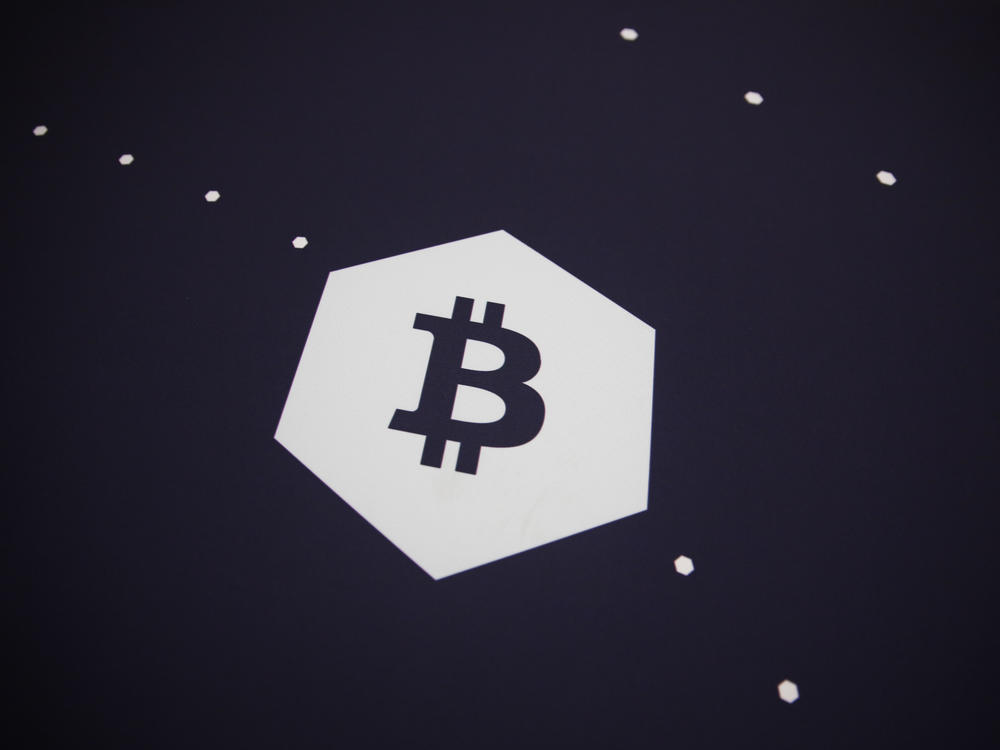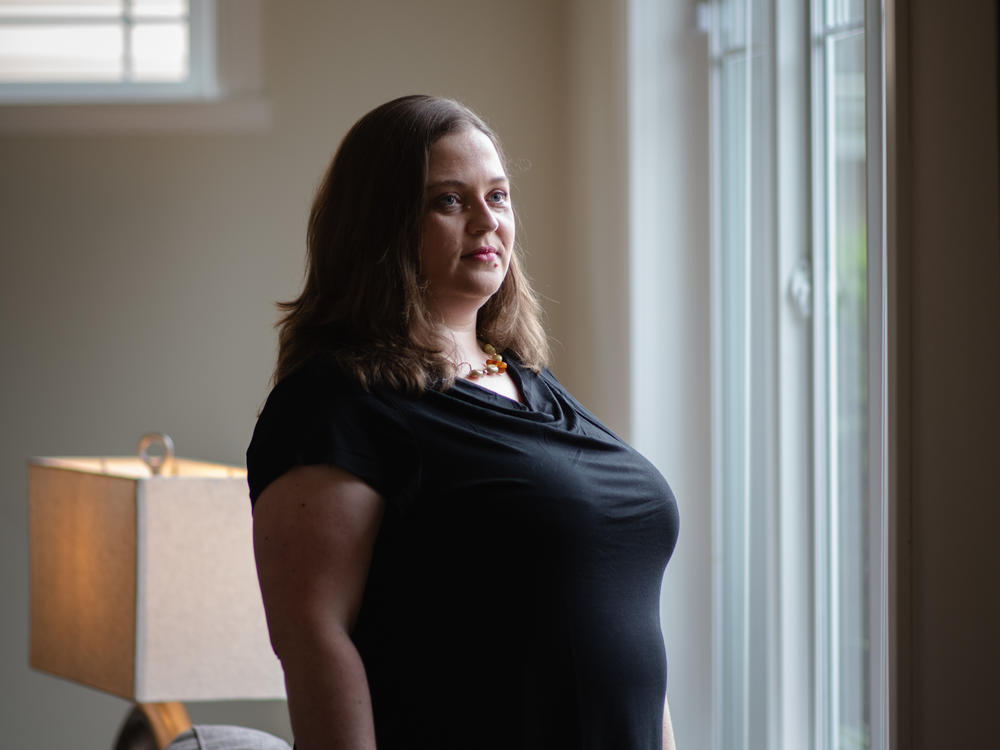Section Branding
Header Content
Amid the hype, they bought crypto near its peak. Now, they cope with painful losses
Primary Content
For Michelle Milkowski, who lives in Renton, Washington, one thing led to another.
Because her son's daycare closed in the early days of the pandemic, she had some extra cash. So, like millions of other people, Milkowski downloaded the Robinhood trading app.
Back then, the stock market was at the beginning of what would become a record-setting run, and Milkowski's new pastime became profitable.
She kept trading shares, but in early 2021, something else caught her eye: Milkowski noticed the value of Bitcoin had reached $60,000.
"I just couldn't believe it," she says, noting she first heard of the popular cryptocurrency in 2016, when its price was less than a hundredth of that. "I felt like I'd just missed the boat, because I could have bought it before it skyrocketed."
Last spring, Milkowski took another look at Bitcoin, and she took a leap. "Better late than never," she remembers thinking.
First, Milkowski bought $500. Then, $10,000. By the end of last year, Milkowski estimates, she had spent close to $30,000 on crypto.
In hindsight, the timing was terrible.
Like many first-time investors, Milkowski bought digital currencies as they were approaching all-time highs, and as companies were spending tens of millions of dollars on marketing to broaden crypto's appeal.
Quarterback Tom Brady and his wife, supermodel Gisele Bündchen, starred in an ad for FTX, and a commercial for Crypto.com featured Academy Award-winning actor Matt Damon.
These were designed to appeal to a potential investor's fear of missing out.
"Fortune favors the brave," Damon says. The ads included little-to-no explanation of crypto, and how risky the unregulated asset is.
About two weeks after that Crypto.com ad debuted, Bitcoin set a new record: $68,990. Today, it's less than a third of that.
Although its backers long claimed it would be a hedge against high inflation, that hasn't proven to be the case. As inflation has surged, Bitcoin has fallen in tandem with high-growth tech stocks. Rising interest rates have made speculative assets less appealing, and cryptocurrencies are no exception.
Milkowski, who is a manager for a large insurance company, says those ads and the "crazy exuberance that surrounded crypto" appealed to her.
"You know, that gives it some sort of approval that not just scammers are using it," she says. "Then, I felt safe to try it out, to put my money in there."
Milkowski ended up branching out from Bitcoin, into Ethereum, Shiba Inu, and Luna, a so-called "stablecoin" that collapsed quickly and catastrophically in May.
Early on, Milkowski resolved not to risk more than she could afford to lose, and Ramiro Flores set the same ground rules when he bought Bitcoin for the first time in 2018.
"I like gambling. I go to Vegas quite a lot," he says. "So, I was like, 'Hey, you know what? Like, this is just like a little trip to the casino.'"
Flores, who used to be a firefighter in Edinburg, Texas, remembers talking about cryptocurrency in the firehouse. After he did some research, he bought $2,000 worth of Bitcoin.
At its peak, the total value of cryptocurrencies worldwide was about $3 trillion. Today, it is about $1 trillion.
Flores calls the downturn heartbreaking, but it hasn't shaken his resolve.
"It's totally a bummer," he says. "But I have faith."
Flores has continued to buy Bitcoin and Ethereum, and he says he believes they will bounce back. Eventually.
He is also optimistic wider adoption of digital currencies will lead to changes to banking and the economy.
"Right now, I'm down some money, but I'm like, 'Hey, if I don't sell, I don't lose out.' I don't lose that money, technically," he says. "So, I'm just going to keep on riding this little roller coaster that we're on."
For Milkowski, the ups and downs — well, especially the downs — got to be too much, and she decided to get off.
"There's definitely peace that comes with just selling off such a volatile asset," she says. "I don't have to worry, 'Am I losing $500, $1,000 today?'"
In May, Milkowski cashed out completely. She decided to cut her losses, which ended up being around $8,000.
Copyright 2022 NPR. To see more, visit https://www.npr.org.



